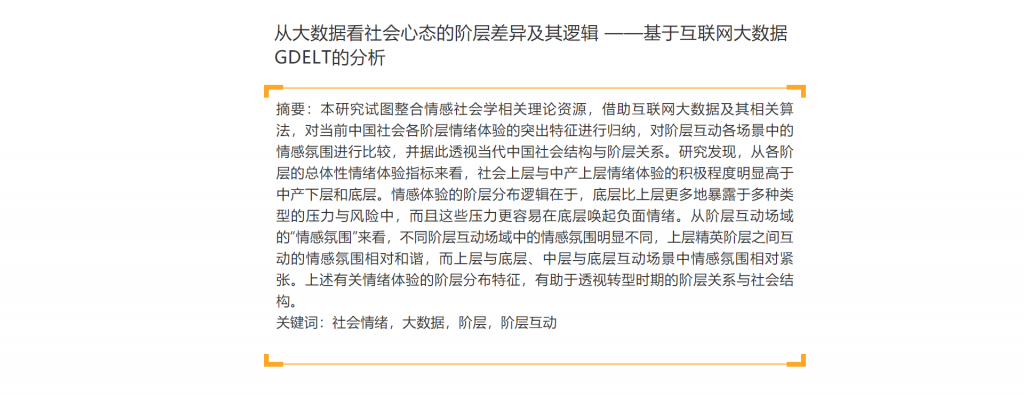This Chinese-language analysis examines how GDELT can be used to understand Chinese society using GDELT. The Google Translate machine translation of their abstract is:
[Google Translate Machine Translation]: This study attempts to integrate the relevant theoretical resources of emotional sociology, with the help of Internet big data and related algorithms, to summarize the prominent characteristics of the current emotional experience of all classes in Chinese society, and to compare the emotional atmosphere in each scene of class interaction. This perspective of contemporary Chinese social structure and class relations. The study found that, from the perspective of the overall emotional experience indicators of all classes, the positive level of emotional experience of the upper and middle classes of the society is significantly higher than that of the lower and middle classes. The hierarchical distribution logic of emotional experience is that the bottom layer is more exposed to various types of stress and risks than the upper layer, and these pressures are more likely to evoke negative emotions at the bottom layer. From the perspective of the "emotional atmosphere" in the hierarchy interaction field, the emotion atmosphere in the interaction field of different hierarchy is obviously different. The emotion atmosphere of interaction between the upper elite is relatively harmonious, while the emotion atmosphere in the interaction scene between the upper layer and the bottom layer, the middle layer and the bottom layer Relatively nervous. The above-mentioned characteristics of class distribution about emotional experience help to understand the class relationship and social structure during the transition period.
